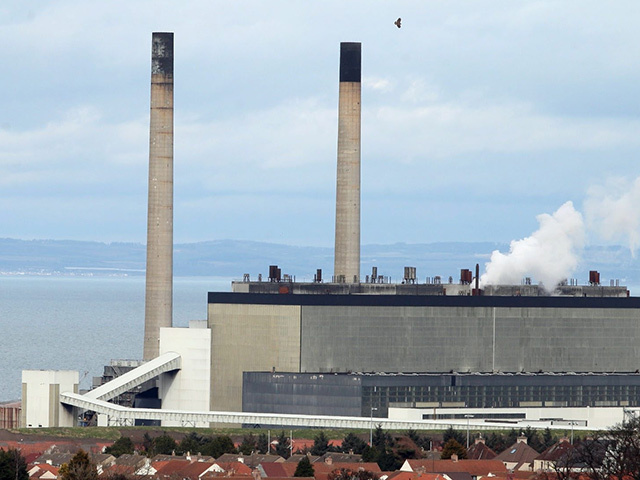
The UK is not on track to meet its targets to cut greenhouse gas emissions through the 2020s, the Government’s climate advisers have warned.
Some progress has been made in putting in place measures to meet the targets, with record levels of new wind farms, improvements in the fuel efficiency of cars, reducing methane from waste, insulating lofts and replacing boilers in homes.
But other measures saw limited advances in 2012 and progress in some areas risked slowing down in the face of new policies, particularly for renewables and insulation for homes, the latest annual progress report to Parliament from the committee urged.
The UK comfortably met its first five-year “carbon budget” to reduce emissions up to 2012, and is on track to meet the next set of goals up to 2017, but this is largely the result of the recession rather than the impact of climate policies.
It is a “very significant challenge” to increase the pace of reductions to meet the third and fourth carbon budgets up to 2022 and 2027, especially when the economy returns to higher levels of growth which could spark more emissions.
“Although the first carbon budget has been comfortably achieved and the second is likely to be achieved, this is largely due to the impact of the economic downturn,” warned the committee’s chief executive, David Kennedy.
“There remains a very significant challenge delivering the 3% annual emissions reduction required to meet the third and fourth carbon budgets, particularly as the economy returns to growth.
“Government action is required over the next two years to develop and implement new policies. A failure to do this would raise the costs and risks associated with moving to a low-carbon economy.”
Last year emissions rose by 3.5%, mostly due to the cold winter and more use of coal instead of gas to make electricity, with the dirtier fossil fuel rising from 30% of the energy mix in 2011 to 39% in 2012, the report said.
Without these effects, emissions would have fallen by around 1% to 1.5%, short of the 3% annual reductions which will be needed to meet targets to cut greenhouse gases in the 2020s.
The report recommended a range of measures across the economy from making eco-driving part of the driving test to tightening building regulations to ensure homes are “zero-carbon” from 2016.
The Government should look at measures to cut emissions from waste, such as banning biodegradable rubbish from landfill or bringing in more separate food leftovers collections, and push to reduce gases that come from air-conditioning and refrigeration.
The expert advisory panel repeated its call for the Government to set a target to slash emissions from the power sector by 2030, to give investors confidence to invest in low-carbon energy such as renewables and nuclear.
The committee warned that incentives for insulation under the green deal were weaker than the system it was replacing, and may need to be strengthened.
And plans for delivering billions of pounds of investment in low-carbon power under reforms of the electricity market must give more clarity and more confidence on the Government’s support for green energy.
“I am pleased that the Committee on Climate Change recognises the good progress that is already being made in many areas – particularly in the deployment of certain renewable technologies and in increasing the energy efficiency of our buildings,” said Energy Secretary Ed Davey in response to the findings of the committee.
“The UK takes its obligations under the Climate Change Act, to cut emissions by 80% by 2050, very seriously. That is why we are on course to overachieve against the first three carbon budgets, taking us to 2022. We are also working to encourage other countries to follow our lead; for example, pushing for the EU to adopt a 50% emissions reduction target by 2030, as part of a global deal in 2015.
“We recognise the challenges ahead in meeting the fourth carbon budget. As stated in our Carbon Plan, we will need additional policies to meet this legally binding goal. We have already published scenarios for how we might achieve the fourth carbon budget and remain committed to doing so.
“We will consider the recommendations put forward by the CCC, and respond formally to the report by October, as required by the Climate Change Act.”
Recommended for you
